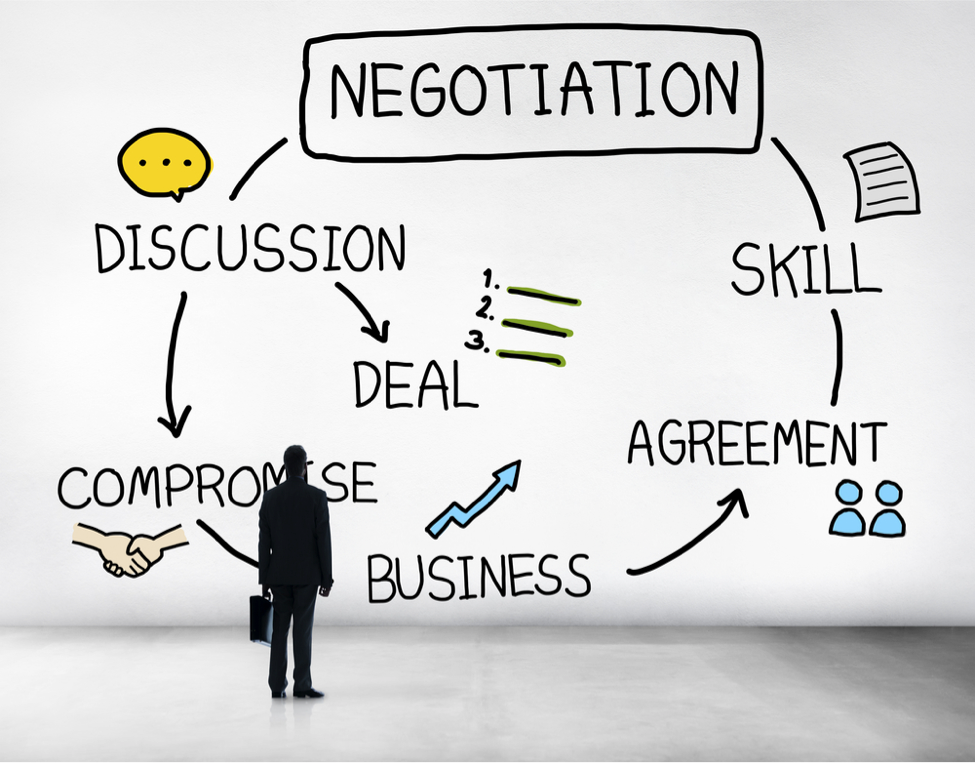Top Negotiation Strategies
Intoduction :
Negotiation is everywhere, from big business deals to everyday decisions. Whether it is securing a business deal, solving a conflict, or simply deciding where to eat with friends, negotiation is an important part of our daily lives. Yet, for many, the thought of negotiation can create feelings of anxiety or uncertainty. What if there were proven strategies to not only reduce these fears but to grow in negotiation scenarios? In this article, we will explore the fundamentals of negotiation, offering practical insights and strategies that will transform the way you approach and succeed in any negotiation.

Top Negotiation Strategies for Achieving Win-Win Outcomes
1.Get Prepared
Understand the diversity of the topic and consider the various scenarios you might face. Consider different outcomes and plan your responses accordingly.
2.Know the Other Party
Gather as much information as possible about the other party’s strengths and weaknesses. This knowledge will help you strategize and negotiate effectively.
3.Know Your Own Strengths and Weaknesses
Be aware of your own strengths and weaknesses related to negotiation. This self-awareness will help you use your strengths and address your weaknesses.
4.Pay Attention to Body Language
Observe the other party’s body language and gestures. These non-verbal cues can provide valuable insights into their feelings and intentions.
5.Listen to Tone of Voice
Pay attention to the tone of voice used by the other party. It can reveal their emotions and level of confidence, helping you adjust your approach.
6.Put Yourself in Their Shoes
Empathize with the other party by understanding their perspective. This helps build rapport and can lead to more collaborative solutions.
7.Keep Emotions in Check
Manage your emotions during negotiations. Stay calm and composed to avoid anxiety, anger, or over-excitement, which can negatively impact the outcome.
8.Aim for ZOPA
Try to reach the Zone of Possible Agreement (ZOPA). This is the range where both parties’ interests overlap, making a deal possible.
9.Know Your BATNA
Identify your Best Alternative to a Negotiated Agreement (BATNA). Knowing your alternatives gives you leverage and confidence during negotiations.
10.Use Analytical Thinking and Active Listening
Apply analytical thinking to evaluate the situation and actively listen to the other party. This combination helps in making informed decisions and building trust.
11.Assess Value
Evaluate what each party brings to the table and what they stand to gain or lose. This assessment helps in creating mutually beneficial agreements.
12.Relationship Matters
Focus on building and maintaining a positive relationship with the other party. A good relationship can lead to better and more sustainable agreements.
What not to do?
2:- Aggressiveness: Being to aggreesive can push people away and cause fights.Stay calm and respectful to keep things positive
3:-Closed-mindedness: Not listening to others stops you from finding the best solutions. Be open to innovative ideas to solve problems more effectively.
4:- Inflexibility: Refusing to compromise can make it hard to reach agreements. Be willing to adjust to find common ground.
5:- Overpowering the other side: Trying to control others can create resentment. Focus on listening and working together for the best results.

Conclusion:
Negotiation is not just about winning—it is about building relationships and finding common ground. By following these twelve strategies, you can become a better negotiator. Remember, negotiation is about collaboration, not competition. So, go ahead, apply these tips, and watch as you create win-win solutions that benefit everyone involved. Get ready to unlock your negotiation potential and achieve success in all aspects of your life.





